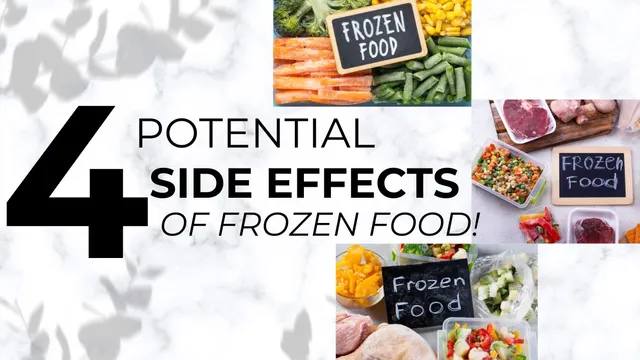- By Priyanka Munshi
- Sat, 12 Apr 2025 01:11 PM (IST)
- Source:JND
Nowadays, many people consume frozen foods like chicken, mutton, momos, fruits, fish, and more. While these options are incredibly convenient and time-saving, especially for working individuals, it’s important to understand that consuming them on a regular basis can have several harmful effects on your health. Most frozen meals and ready-to-eat snacks available in the market are high in sodium, unhealthy fats, and preservatives, all of which can seriously affect your heart health.
Not just that, regular consumption of such foods can raise your blood pressure, lead to unwanted weight gain, and deprive your body of essential nutrients. During the freezing and packaging process, many food items lose their natural nutrients. Eating frozen food occasionally is fine, but depending on it for all three meals daily can keep you away from the fresh, nutritious meals your body truly needs. So here are some major side effects of frozen food consumption that you should be aware of:
1. Nutrient Loss
One of the major reasons to avoid frozen food is the significant loss of important nutrients. Vitamins like vitamin C, vitamin B, and other water-soluble nutrients often degrade during the freezing and packaging process, making the food less nourishing.
2. High Sodium Content
Another critical concern is the high sodium content found in most frozen foods, especially ready-to-eat meals. Consuming too much sodium can increase your blood pressure, put strain on your heart, and cause water retention, leading to bloating and other health issues.
Also Read: Pineapple Juice: 4 Health Benefits Of Drinking It Every Morning
3. Weight Gain
Frozen foods often contain excessive calories and very little fiber. This low-fiber, high-calorie combination can make you feel less full, leading to overeating and, eventually, unwanted weight gain.
4. Poor Digestion
One of the most dangerous side effects of consuming frozen food regularly is its negative impact on digestion. These foods typically lack sufficient fiber, which is essential for smooth digestion. Constant intake of low-fiber frozen meals can lead to digestive issues like constipation.
Disclaimer: This content, including suggestions and advice, provides generic information only. It is in no way a substitute for qualified medical opinion. Always consult a specialist or your own doctor for more information before making any drastic changes in your lifestyle.

